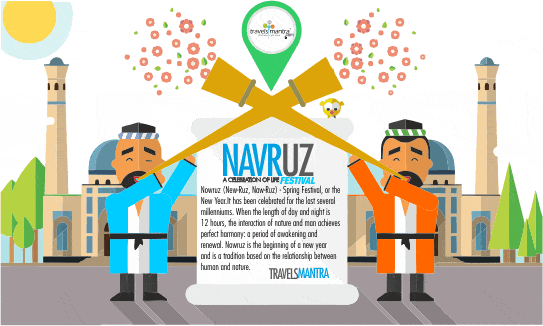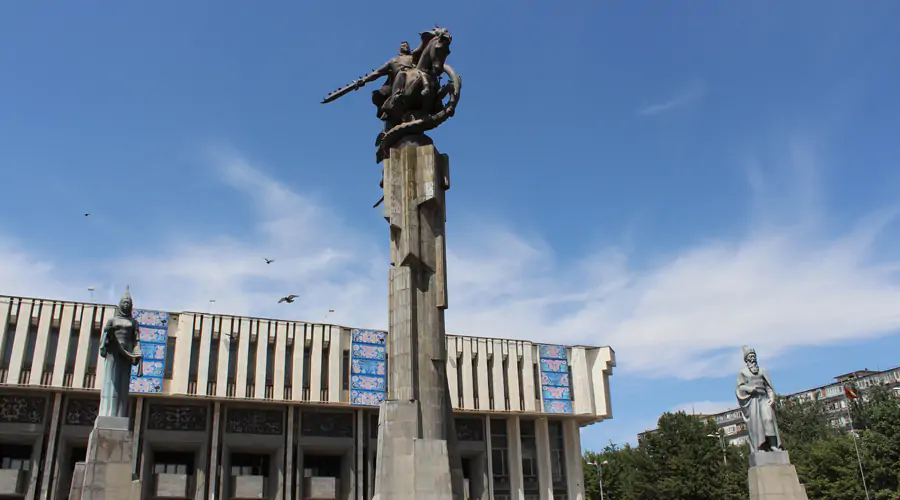Navruz (New-Ruz, Naw-Ruz) – Spring Festival, or the New Year. It has been celebrated since last several millenniums. When the length of day and night is 12 hours, the interaction of nature and man achieves perfect harmony: a period of awakening and renewal. Navruz is the beginning of a new year and is a tradition based on the relationship between human and nature.

It is celebrated in many ways that include fun things like street festivities, big bazaars, horse racing, dog and cock fights. The main holiday tradition is “Sumalak” – a New Year’s dish cooked in wood-fire and made of flour and germinated wheat grains, sometimes with spices. Sprouted grains are a symbol of life, warmth, abundance and health.

This celebration is festive of awakening of nature and start of sowing works. Sumalak needs to be cooked with songs and humorous, fun melodies, and telling funny stories of various legends and socializing.
As a tradition a few pebbles and stones are thrown into the cauldron to keep the dish from burning. And it is said that whoever gets these pebbles and stones on their plate is very lucky as their sincerest wish comes true.

The dish is ready when it is sweet although there is no sugar in it. It’s needed to prepare sprouted wheat, halva, “bichaki” (traditional cakes) with spinach, samsa, raisins, dried apricots and other sweets for the festive table. You are meant to wish and greet your parents, then other members of the family and then finally your friends and forgive and apologize to all those who you have had a twitch within the last year. The most popular event of the day is ‘kupkari’ (another name is ’ulok’) – the game which is rather like polo, but with using a goat carcass instead of a ball and a prize is given to the winner. Navruz is celebrated in all parts of Central Asia.













